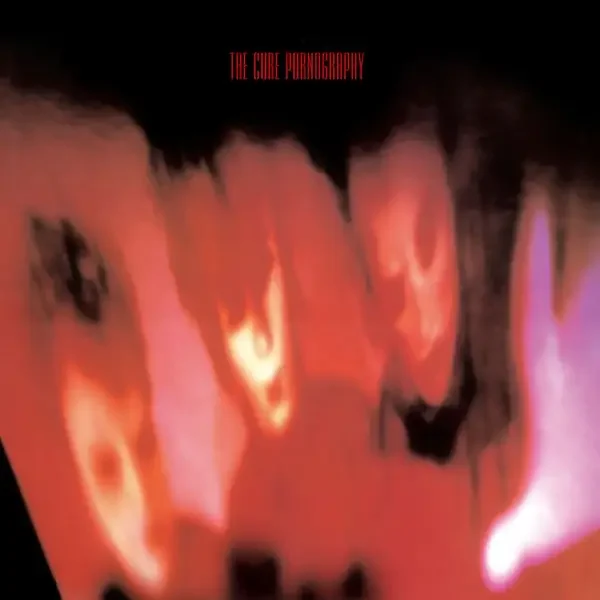The Cure
– Pornography
Robert Smith didn’t just wake up one day and decide to record the most harrowing, suffocating album of his career—Pornography sounds like the inevitable consequence of a band teetering on the edge of total collapse. Released in 1982, this record is less an album and more a sonic abyss, a place where synths drip like water in a dungeon and drums pound like a funeral march for hope itself. The Cure had already flirted with darkness on Seventeen Seconds and Faith, but here, they embrace it completely, pulling the listener down into a world where every lyric stings and every melody claws at your skin.

There’s no relief here. No bright, jangly detours or fleeting moments of light. Just wave after wave of thick, cavernous production, relentless drum patterns, and Smith’s tormented wail, barely clinging to melody as he spits out lines like “It doesn’t matter if we all die.” From the opening gut punch of “One Hundred Years” to the closing, suffocating title track, the album drags you through despair like a slow-motion car crash you can’t look away from. It’s hypnotic, nightmarish, and brilliant in a way that feels almost wrong. This wasn’t just goth rock—it was the sound of a man unraveling in real-time, and somehow, it remains one of The Cure’s most compelling statements.
If Pornography was meant to be a final act, it’s an astonishing one. The band was on the verge of implosion, and the music reflects that perfectly. Yet, somehow, it became a foundation rather than a tombstone. From here, The Cure would shift and evolve, embracing pop sensibilities and crafting some of the most beloved alternative anthems of the ’80s and beyond. But Pornography? It stands alone, a monolithic testament to what happens when an artist refuses to look away from the abyss.
Choice Tracks
One Hundred Years
This is how you start an album meant to break people. The opening synth line pierces like a siren, while the drums hammer away like an executioner’s drumroll. Smith is at his most unhinged here, delivering nihilistic poetry over one of the band’s most crushing instrumentals.
A Short Term Effect
Less immediate than the opener, this track swirls in a haze of reverb-soaked guitars and eerie synths. It feels like stumbling through a nightmare, with no clear exit in sight. Smith’s vocals are ghostly, distant, as if he’s barely holding on.
The Hanging Garden
The closest thing to a single on Pornography, if only because of its propulsive drum beat. It moves with a tribal urgency, almost danceable if you ignore the lyrics about destruction and decay. One of the few moments where rhythm takes center stage over pure atmosphere.
Cold
This is the sound of frostbite. The piano is skeletal, the bassline sluggish, and Smith sings like he’s exhaling his final breaths. There’s something eerily beautiful in its bleakness, a frozen moment in time that lingers long after the song ends.
Pornography
The title track is the culmination of everything the album has built toward—paranoia, loss, and self-destruction wrapped in six minutes of tension and dread. Smith’s delivery is desperate, the instrumentation feels like walls closing in. It’s not just a song—it’s a descent.
Pornography isn’t just an album; it’s a psychological experience. You don’t listen to it so much as you endure it. And yet, there’s something undeniably mesmerizing about it. It’s The Cure at their darkest, most extreme, and yet, it’s also the reason they became legends.

